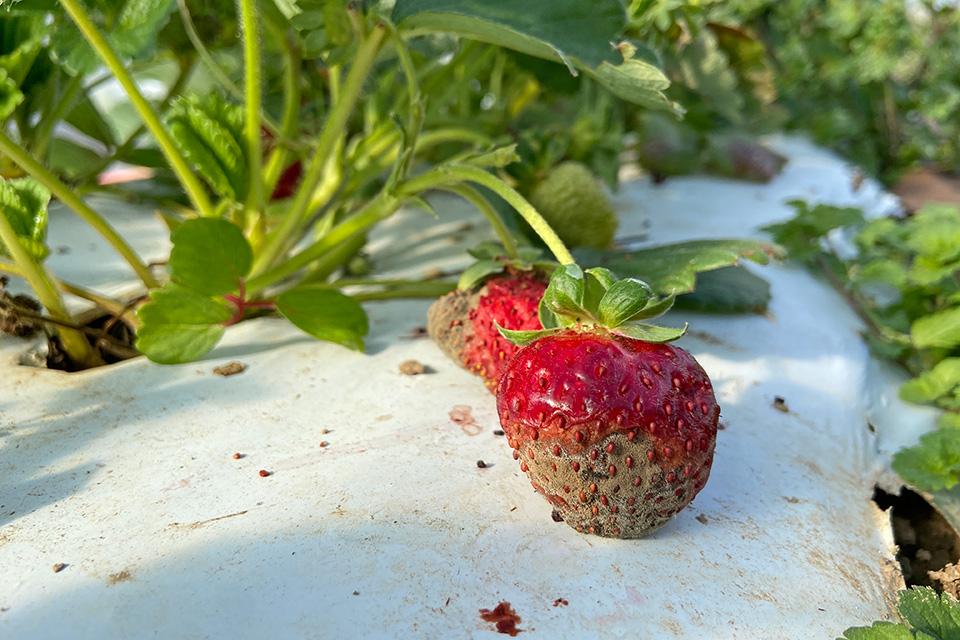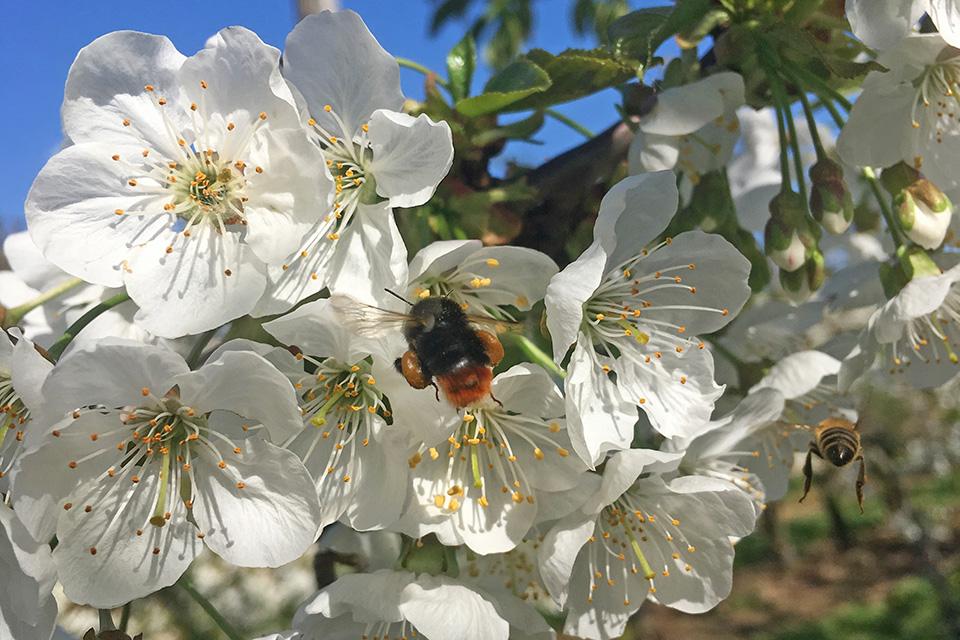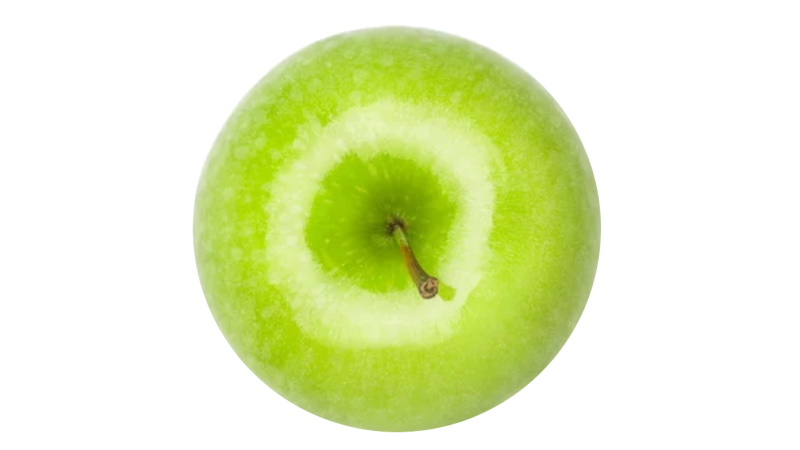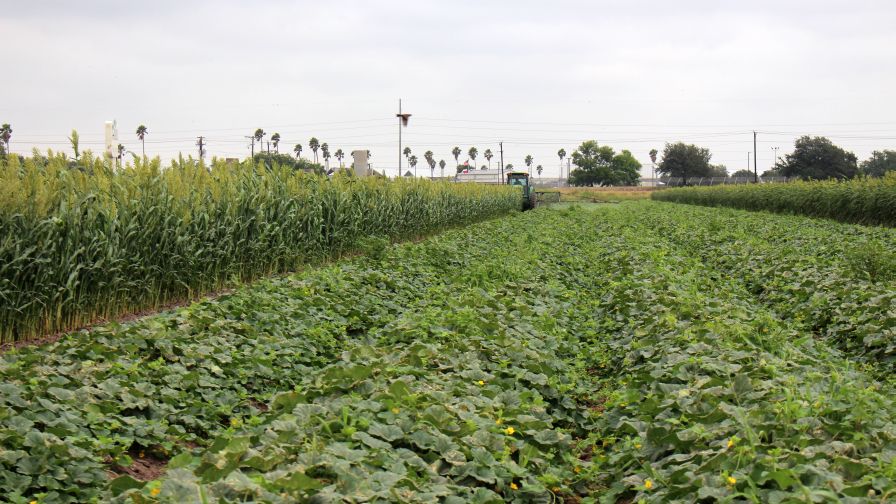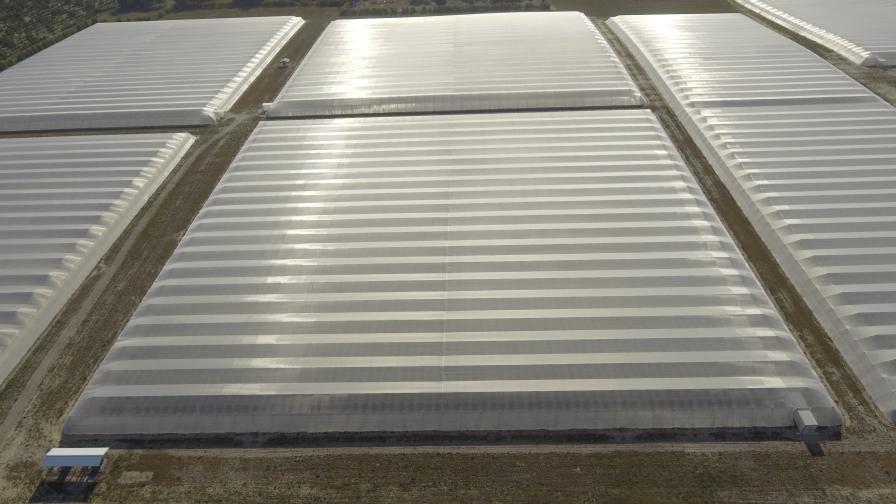A Glimpse Into The Future: Your Headlines For 2012
It may be impossible to predict the future, but who says you can’t give it a shot, and perhaps have fun doing it? To kick off 2012, we asked numerous members of our audience, “What will be the most important headline of 2012 for the fruit industry?”
We were hoping for a broad range of responses, and we certainly got them. As expected, the issue of labor supply and immigration reform was top of mind for many. But as you will see, there are a host of other hot-button topics and trends that will likely dictate the direction this year will take.
However, the discussion does not have to end here, and maybe there are some true fortune-tellers out there. How would you answer the question posed above? Let us know by sending an email to [email protected], or by commenting with your own suggestions at the bottom of this page. We want to hear from as many of you as possible, so keep your responses coming.
(Massachusetts):
“I would not be surprised to see a headline like ‘Farmworker Rights Advocates Join Produce Growers Pressing For Farm Labor Regulation Reforms.’ More likely we’ll see ‘Studies Confirm An Apple A Day As Effective As Viagra.”
— Mo Tougas, Tougas Farms
“Congress takes responsibility for immigration reform and drops the idea of E-Verify while fully funding ARS, APHIS, NIFA and University Extension programs.”
— Nate Nourse, Nourse Farms
“Increased focus on mechanization in the orchard, especially thinning with the Darwin thinner, and possibly more accurate prediction of thinning responses with the carbon balance model and the fruit grow model.”
— Duane Greene, University of Massachusetts
“Future of Orchard Labor: Immigration Reform, H-2A, and Robotics”
— Wes Autio, University of Massachusetts
“‘Buy Local’ movement peaks; China in talks with Wal Mart to use ‘locally grown’ on their apple exports to U.S.
or
“Strengthening economy likely bad news for agriculture”
or
“Too many problems growing and harvesting ‘SweeTango’, NBT Cooperative closes its doors for good”
or
“Fruiting Wall apple production system poised to replace Tall Spindle as next ‘darling’ apple orchard system”
or, finally
Novel mechanical pollination method a viable alternative for honeybees: http://www.youtube.com/adwords10?x=982b2fbe072545259d6c179c15111da2
– Jon Clements, University of Massachusetts
(New York):
“What will be the impact of invasive pest species on your fruit operation?”
— Art Agnello, Cornell entomologist
“America decides to import all its food and leaves labor at the fence. Conservatives happy, consumers can’t figure out what happened to domestic food, and the National Security Council is wondering how China took over the U.S.”
Or
“Consumers truly eating healthy, fresh food prices spike due to surge of demand, major investment and job growth by food industry lifts U.S. out of recession.”
— Brian Nicholson, Red Jacket Orchards
“Spotted wing drosophila supplants brown marmorated stink bug as the most feared invasive pest.”
— David Rosenberger, Cornell plant pathologist
“Congress passes sane, simple, and effective immigration reform. American agriculture saved, secure food supply ensured for generations to come.”
— Mike Biltonen, Red Jacket Orchards
“The price of fruit is so high that lower income families will reduce their consumption dramatically, leading to increasing concern about the health of Americans as they substitute higher caloric foods for fruits and vegetables.”
— Marvin Pritts, Cornell University
(Pennsylvania):
“2012 will prove to be a critical year in evaluating brown marmorated stink bug, and it looks like definite progress is being made. Conversely, Eastern growers may face a more serious threat in apple scab infestations, and we may have a disease crisis on our hands if we can’t identify treatments.”
— Brad Hollabaugh, Hollabaugh Bros.
“Consumers continue to have increased interest in ‘buy local/buy fresh’ as direct marketing revenues continue to increase. On the challenging side, our long-term national security is at stake as it is increasingly difficult to produce fruit in this country due to increased labor shortage, regulations and pressure from pests.”
— Ed Weaver, Weaver’s Orchards
“New Farm Bill — Specialty Crops’ Friend or Foe”
— Bruce Hollabaugh, Hollabaugh Bros.
(New Jersey):
“In light of E-Verify being seriously considered in Congress and individual states tackling immigration issues more strongly on their own, we need a simplified and reliable program to bring in temporary workers to do the work on farms which most Americans will not do.”
— Kurt Alstede, Alstede Farms
(Michigan):
“I hope I’m wrong but I think it’s labor. We’ve all heard the issues in Georgia and Alabama about getting crops harvested, and the issues that were in Washington during apple harvest. We had growers that had labor issues here in Michigan this season. I’m really sick and tired hearing the comments on TV and radio in regards to immigration where people say, ‘They are taking jobs away from hard working Americans.’ I say ‘Bunk,’ Americans won’t do the work outside that these people do, nor do they want to work inside. Our ‘system’ has made it too easy to sit at home rather than work.
— Scott Swindeman, Applewood Orchards
“Congress passes immigration reform which includes a viable guest worker provision.”
— Ed Robinette, Michigan State Horticultural Society
(Ohio):
“The shortage of skilled harvest labor seems to get worse every year. We need a workable guestworker program. If we cannot harvest our crops, many other jobs will be lost in the many other industries that rely on produce to support their businesses (boxes, poly bags, labels, trucking, pallets etc).”
— Bill Dodd, Ohio Apple Marketing Program
(Illinois):
“Brown marmorated stink bug continues moving west, but with so many scientists working on this issue, effective management tools are sure to follow. Also, one more: ‘Food Production…Smaller Is Better, Say Consumers.’ The shift toward local and artisan food products will continue.”
— Ken Hall, Edwards Apple Orchard
(Minnesota):
“The typical conversation starter of ‘How was your crop this year?’ has changed to ‘Didja have enough pickers?” usually followed by a litany of labor horror stories.”
— Dennis Courtier, Pepin Heights Orchards
(Tennessee):
“American fruit growers find increased productivity and profit in 2012.”
— Lars Swanson, DuPont Crop Protection
(North Carolina):
“The ‘Dr. Oz’ show about arsenic in apple juice. For someone who saw what the Alar scare did to the apple industry, this story really bothers me. The fact that little or no mention was made of the difference between foreign vs. domestic apple juice arsenic levels also bothers me.”
— Kenny Barnwell, Kenny Barnwell Orchards
“The Impact Of Spotted Wing Drosophila”
— Debbie Hamrick, North Carolina Farm Bureau
(Georgia):
“Obama Signs Guest Worker Reform Bill – Growers Happy New Program Will Provide Adequate Labor to Harvest Crops”
— Charles Hall, Georgia Fruit & Vegetable Association
“I genuinely believe Flavor/Freshness will be as important as ever for consumers. We are getting asked more now ‘what does it taste like’ as opposed to questions about color and size. Consumers are always seeking value but value can be realized in a memorable eating experience.”
— Duke Lane III, Lane Southern Orchard
(Florida):
“Our state lawmakers need to focus on what’s really important: our economy and job creation. FFVA is hard at work educating members of Congress on the consequences of mandatory E-Verify without an accompanying guest worker program that makes sense for agriculture.”
— Lisa Lochridge, Florida Fruit & Vegetable Association
(Washington):
“Rapid Advances in Pheromones, Soft Chemistry and Biological Control Mean Gains Made Against Brown Marmorated Stinkbug, While Spotted Wing Drosophila Populations Remain Extremely Low”
— Andrew Kahn, Northwest IPM
“FDA Issues Proposed Rule for Produce Safety”
— Christian Schlect, Northwest Horticultural Council
“The Great Recession Changes Food Buying And Consumption: Reduced government spending and rising taxes are squeezing consumers, especially those in the bottom half of the income distribution. The period of indulgence has been replaced by an era of thrift. Mass market retailers have been feeling the pain. They, in turn, will offload as many burdens as they can on produce suppliers. Suppliers with marginal financing will be in serious trouble.”
— Desmond O’Rourke, publisher, World Apple Report
“Global Gap: Get on board or get left behind and sell the farm”
— Gary Snyder and Todd Snyder, C&O Nursery
“How will labor impact the fruit industry in 2012 and beyond? High-density planting and excellent fruit quality will have little value if the fruits cannot be harvested.”
— Harvey Yoshida, product technology specialist, Dow AgroSciences
“Climatologists predict another cool/moist season; graoe growers question ripening, disease impact”
— Washington Association of Wine Grape Growers
“Tree fruit industry generosity changes lives! The tree fruit industry scholarship program continues to grow. In 2011, more than 150 students attended college with Washington Apple Education Foundation scholarships. In 2012 that number will be closer to 200. Our current goals are to make sure each student entering college with a WAEF scholarship graduates with a degree; make sure kids from our industry are not in the group no longer eligible to attend college due to rising tuition costs; and connect student interests with tree fruit industry careers. These efforts on the right track thanks to industry member support.”
— Jennifer Witherbee, Washington Apple Education Foundation
“Congress Passes Meaningful Ag Jobs Bill! The biggest dilemma currently facing anyone involved in the agricultural sector is the shortage of a legal workforce. It is estimated that at least 70% of our existing agricultural workforce is illegal. Mandatory E-verify programs passed by state legislatures have proven to have had disastrous consequences, with millions of dollars worth of produce left in the fields due to a lack of sufficient labor! The time is now for Congress to act on a workable H-2A guest worker program with rules and regulations that will not be subjected to dramatic changes on a yearly basis, and will make it affordable for farmers to implement.
— Scott McDougall, McDougall & Sons
“Reconfirmed: New orchard plantings must accommodate future technologies such as robotic/mechanical assist harvest”
— Tom Auvil, Washington Tree Fruit Research Commission
“Farm Labor Deal Pleases All Involved”
— Tim Smith, Washington State University
“Federal budget wrangling will create negative fallout for specialty crops.”
— Julie Tarara, research horticulturist, USDA-ARS
“Adequate labor supply as affected by federal and state regulations”
— Mike Bush, Washington State University entomologist
“Consumption of apples rises in the U.S. as consumers continue to recognize the many health and nutrition qualities that they bring to their lives.”
— Roger Pepperl Stemilt Growers
(Oregon):
“Labor, Labor, Labor: Will there be legislation for a guest worker program to accommodate agriculture connected with the E-verify legislation?”
— Dave Weil, Tree Connection
“President Signs Guest Worker Program for Agriculture!”
— Clark Seavert, ag economist, Oregon State University
(California):
“Without Immigration Reform, Fruit Growers Worry Over Future Harvests”
— Blair Richardson, WesPak Sales, (grower/shipper of stone fruit, cherries, table grapes, and specialty fruits)
“Federal Funding For Regulatory Agencies Slashed — EPA and Army Corps of Engineers eliminate enforcement branches”
— Brad Goehring, Goehring Vineyards
“This should be the biggest headline: ‘Obesity Epidemic Will Cause Diabetic Tsunami in America; Experts Agree That Fruits and Vegetables Are the Best Way to Avoid It’”
— Dan Gerawan, Gerawan Farming (stone fruit and table grape grower/packer/shipper)
“Growers Deal With Herbicide-Resistant Weeds”
— David Doll, University of California-Davis
“Will Congress approve a Farm Bill that comprehensively includes specialty crops and/or punt to 2013?”
— Joe Bezerra, California State University-Fresno
“Global Demand for California Nuts and Produce Soars to Historic Levels”
— John Duarte, Duarte Nursery
“U.S. Fruit and Nut Exports Boost Balance of Trade: It is anticipated that from a record almond crop of close to 2 billion pounds, approximately 80% of this year’s tonnage will be exported.”
— Larry Easterling, King Pistachio Grove
“Record Acreage For California Berry Growers In 2012”
— Mark Bolda, University of California-Davis
“A standing room-only crowd at our first University of California Cooperative Extension pomegranate meeting indicates the desire for information about this new crop.”
— Maxwell Norton, University of California-Davis
“What is the real cost of low emission engines? From the information we are receiving from engine manufacturers, Interim Tier 4 and eventually Tier 4 final engines are going to dramatically affect the fruit and nut industry. These engines will be significantly more expensive in installation cost, and also more costly to operate and maintain.”
— Mike Flora, Flory Industries
“EU Implodes, Who’s Next? Europe is a key market for U.S. fruits and nuts. A third of the California almond crop goes to the EU. What will happen to our markets and farm income if the EU breaks up or their connected economy (and ours) skids even further than now? This might be a short-term problem, but could be tough to weather, especially with growing production in the nut crops.”
— Franz Niederholzer, University of California-Davis
“THE headline for agriculture in general and the fruit industry in particular, along with the vegetable industry is immigration reform!!! E-Verify as a stand-alone bill will not see the light of day in this Congress, but done correctly could provide the opportunity to have an immigration reform package that could utilize part of the present E-Verify proposal, but ONLY IF it included as part of the same bill, the creation of a workable, market driven and portable agricultural worker program which could allow undocumented workers to attain legal work credentials. If Immigration and Customs Enforcement(ICE) continues their I-9 audits and selective workplace raids, it will result in huge financial and production supply repercussions throughout the fresh fruit and vegetable segments of our agricultural industry.”
— Paul Wenger, almond/walnut grower and president, California Farm Bureau Federation
“Continued Record Prices For Wine And Raisin Grapes; Also, Continued Ag Labor Shortages”
— Ron Brase, CalagQuest Consulting
“Labor shortages drive up costs and leave crops unharvested”
— Chuck Ingels, University of California-Davis
“Record setting profits and a positive sustainability scorecard: How top growers do it all”
— Elsa Zisook, Valent U.S.A.
“A rapidly growing middle class in China and India has resulted in an unprecedented demand for quality fruit. However, due to increasing global economic woes, the expected rise of affluent Chinese consumers has stalled; fruit growers, along with all exporters of U.S. ag products, have been hit hard.”
— Joe Traynor, pollination specialist
“High Jobless Rate Continues To Fuel Anti-Hispanic Immigration Position”
— Joe Zanger, Casa de Fruta
“Apple grower/exporters fear competition from China.”
— Linda Romander, Broadhead & Co. (PR, Almond Board of California)





